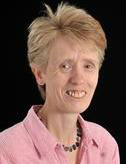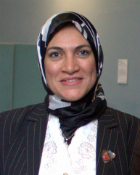 Dr Valerie Lipman is Honorary Post-Doctoral Research Fellow at the Social Care Workforce Research Unit. (553 words)
Dr Valerie Lipman is Honorary Post-Doctoral Research Fellow at the Social Care Workforce Research Unit. (553 words)
We don’t see much about the lives of older men in the field of social care. The focus tends to be on older women, partly because women’s life expectancy is longer and perhaps, because in the care field, women are more visible in the traditional care settings, such as day centres and care homes. ‘Have your circumstances changed?’, a triptych of duets between an ageing man and a boy of about 10-12 years of age, stages the daily routine of a single older man.
The three short pieces, about 15 minutes each, are set in sequence in a kitchen, living room and bathroom, showing a different older man managing life on his own. The performance takes place in the windows of a former furniture shop in a former shopping mall in Islington, north London. There’s no dialogue but just a series of noises of daily living. In the kitchen the man accidentally tips his rice crispies all over the floor, the sink gurgles, he thumps his knife into an onion, and butter splutters in a frying pan on the cooker all against the background of Radio 2. In the living room the TV blares out quiz shows, football and the Generation Game. And in the bathroom we hear the toilet flush, medicines fall out of the cabinet and imagine the scraping of shaving and the sizzing of false teeth in the glass. Continue reading








